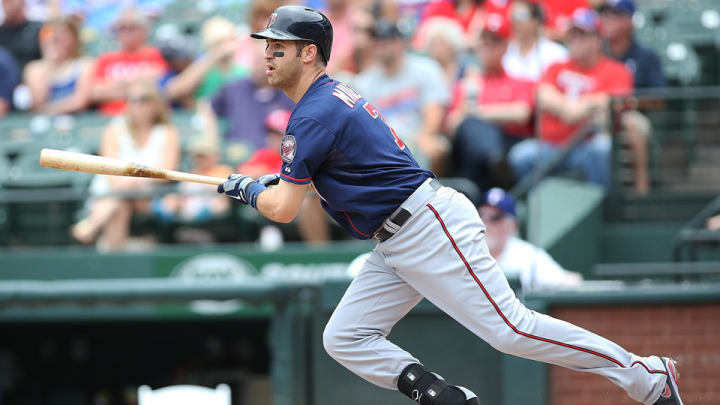From Minneapolis to South Africa, keeping up with the Twins

Somewhere in Mpumalanga, on the road to Mala Mala, the terrain began to look vaguely Minnesota — “Foreign but familiar,” said my brother-in-law Mike, perhaps because his Twins cap was reflected in the van window.
We were 8,917 miles from Target Field, but everything in South Africa could be converted to Minnesota. Windhoek, the Namibian lager, was “more Grain Belt Premium than Grain Belt Nordeast,” said my brother Tom, two days into a safari, when it was becoming hard to tell the animals — Oxpecker, Black Rhino, Barn Owl — from Target Field craft beers. Each sighting of a steenbok in the bush called to mind the former Twins catcher Terry Steinbach, to say nothing of the former Twins outfielder Randy Bush.
This was to be expected when my father turned 80 in June and 25 of his kids and grandkids and offspring-in-law celebrated with him in Africa. Our family tree is spread wide, like the umbrella trees of Kruger National Park, but its roots are in Bloomington, Minn., onetime home of the Twins, who are never far from our minds in summer, even when summer is a South African winter.
Our trip began in Cape Town, on its famous Victoria & Alfred Waterfront, with three members of our party in Twins caps and a fourth in a Twins T-shirt exchanging nods with a passing stranger in a 1990s‑vintage Twins windbreaker. In those nods was a shared history of men named Mongo and Bombo and Lombo, as well as the shared malaise of the 2014 team, mired in the crawl space of the American League Central.
Over lunch in an old Dutch winery, talk naturally turned to Old Dutch potato chips — a Minnesota staple whose Rip-L Chips come in a two-pack called the Big Twin — which led to talk of another Minnesota brand endorsed by the biggest Twin of all. “Did you hear?” Mike said. “Kemps dropped Mauer.”
Kemps, as every Minnesotan knows, is a purveyor of milk and ice cream, and Joe Mauer, the Twins’ catcher turned first baseman, is milk and ice cream incarnate: Homegrown and calcium-rich, he had been featured on Kemps billboards beneath the caption TALL, DARK & WHOLESOME.
But a series of injuries and a payroll-crippling salary of $23 million have turned the kind of people who phone into radio stations against Mauer, who has maintained his equanimity and sideburns, if not his otherworldly hitting. In ice cream terms, his persona has passed from vanilla to rocky road, and Kemps did not re-up his deal when it expired at the end of 2013.
To us, though, Mauer still embodies the best qualities of a Joe — one part Joe Cool, two parts Regular Joe — and to my 10-year-old nephew Joe Kolar, whose rookie season of life coincided with Mauer’s rookie season as a Twin, he remains Our Joe. “It’s fun sharing a name with such a good player,” said Joe, who has a Mauer poster on his bedroom wall in Minnesota, a state from which I never really achieved escape velocity.
And so we’re still paying attention to the 2014 Twins, who have not aroused much excitement, even among those of us who know skipper Ron Gardenhire is an anagram of Groin Hardener. My brother Tom is a Minneapolis resident who still bikes with his family of four to Target Field, where they occupy good seats while he partakes of the park’s nearly two dozen craft beers. “I think of it as a very steep cover charge,” he said of his tickets. “I know the names of the players but almost nothing else about them.”
As he spoke, we were failing to take notice of a passing rhino at the Mala Mala game reserve on the Sand River. “It looks like the Minnesota River between Bloomington and Mankato,” Tom said.
And so it went for two weeks. On Robben Island, where Nelson Mandela was imprisoned for 18 of his 27 years in captivity, I was led into the great man’s tiny cell by another former inmate, political prisoner 38/84, Kgotso R.J. (Dede) Ntsoelengoe, whose fight against apartheid got him sentenced, as a 20-year-old in 1984, to 25 years on this windswept outpost looking back at Table Mountain.
Perhaps missing the point, I said that Pule Patrick (Ace) Ntsoelengoe of the Minnesota Kicks in the North American Soccer League was my favorite player as a kid. They shared a stadium with the Twins and...
“You know him!” Dede said of his distant relative. “And you said our name right!” (It’s pronounced net-so-LEN-gay.) “When he was playing soccer, I was busy with the struggle,” he said, “but he once told me that Americans didn’t know how to pronounce his name. They called him Not-So-Long-Ago.”
What helped sustain Dede in prison were what he called the Four Pillars of Prison Life. “The first of these,” he said, “is sports.”
I looked around at our motley collection of Twins caps (and Blackhawks T‑shirts and Notre Dame sweatshirts), and Dede said, “Sundays, we were confined to our cells morning till night. But on Saturdays, we played soccer from eight to two, and if we ever talked sports, it would descend into chaos.”
That chaos is a common language, so that my extended family shares not just a surname and pipe-cleaner calves but also an ability to imitate Rod Carew’s batting stance, as well as an abiding affinity for the late South African midfielder who played at Metropolitan Stadium when the Twins were on the road and the grass was taken over by the Kicks.
“Ace Ntsoelengoe!” Dede Ntsoelengoe said on a rainy morning in his former prison yard halfway around the world. “You have made my day.”
The Twins, alas, were not making ours. They lost their fifth straight game that night, 2-1 in Boston, as a furtive glance at my phone would reveal. Back in the States, I still follow them, largely through my dad, whose nightly phone calls from the Twin Cities to Connecticut carry a high-volume backing track of Dick Bremer and Bert Blyleven calling the games on Fox Sports North. Dad is the third man in the booth, always saying the same thing: That the Twins don’t have the starting pitching to compete (even though Phil Hughes has been a happy surprise this season).
My father can be an unreliable narrator. We’d been chatting for half an hour one night in 2007 — the ball game humming in the background — when an ESPN ticker informed me that the Minnesota pitcher was perfect through eight. “Why didn’t you tell me Scott Baker has a perfect game going?” I shouted down the line, and my father replied in a small, chastened voice, “I didn’t wanna jinx him.”
Dad has a penchant for butchering player names — I will always think of the White Sox first baseman Paul Konerko as Paul Kernocko — but he loves the Twins and I love him, and my greatest regret in life is that when the Kiss Cam found me at the Metrodome, I turned to my left and kissed my wife when I should have turned to my right and kissed my dad.
